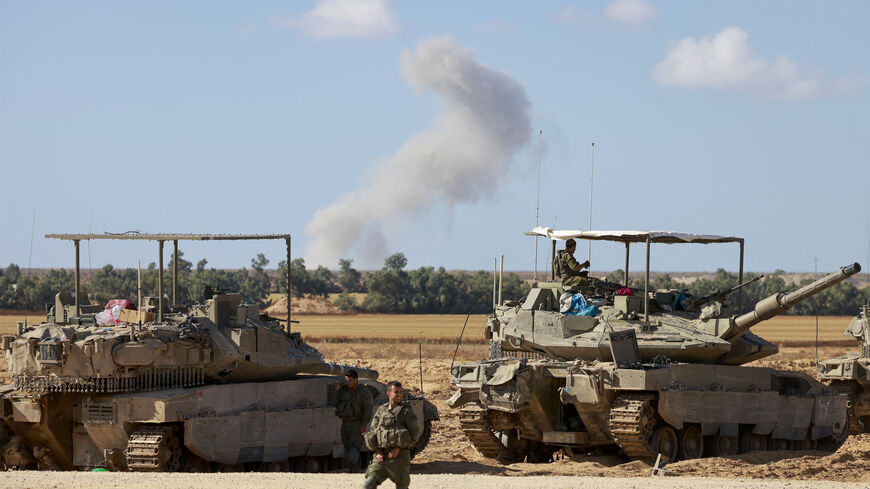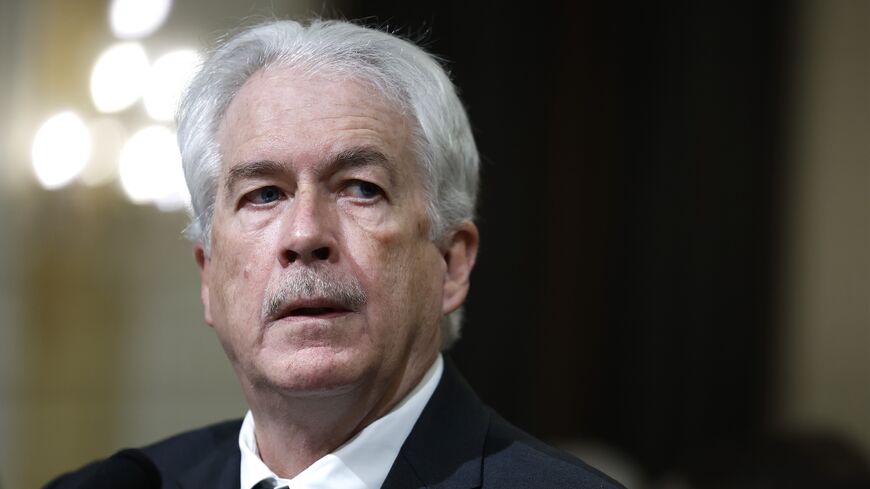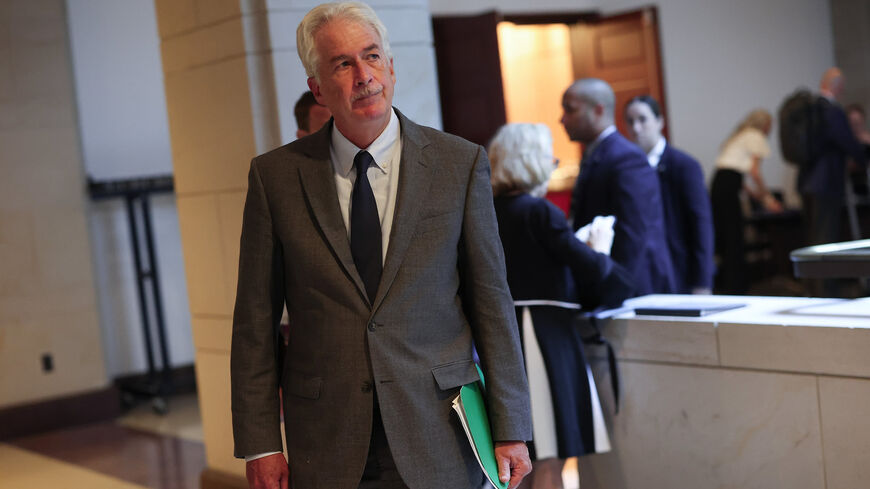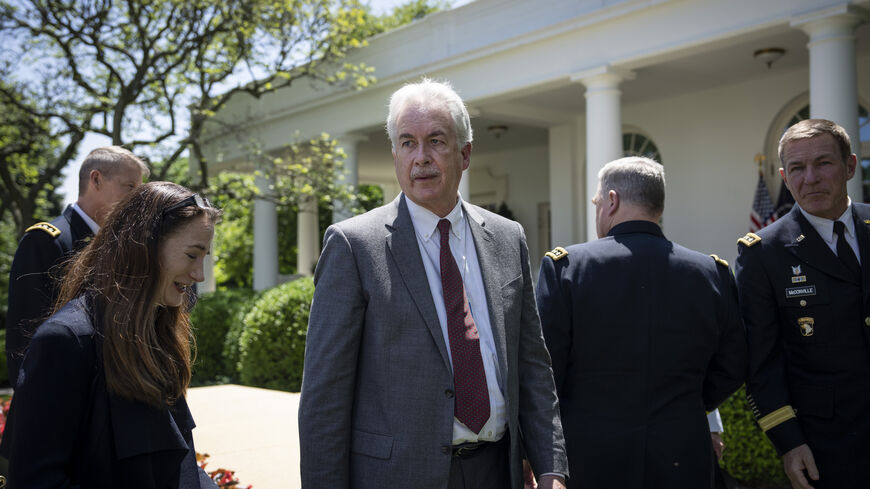CIA chief meets Netanyahu as Israel sees no imminent deal from Cairo talks
Israel kept its negotiating team in Cairo as CIA chief William Burns met with Prime Minister Benjamin Netanyahu.

With no breakthrough in Cairo yet, the Israeli negotiating team will remain in Egypt for further discussions as CIA chief William Burns met Wednesday in Israel with Prime Minister Benjamin Netanyahu to discuss the push for a hostage release and cease-fire deal.
Indirect talks were held Tuesday in Cairo between Israel and Hamas ahead of Burns second trip to Israel in less than a week.
Burns met privately with Mossad chief David Barnea ahead of meeting Netanyahu. Barnea, Strategic Affairs Minister Ron Dermer and other top Israeli officials attended the Neyanyahu meeting.
Ynet reported that the Israeli team is disappointed by Burns, suspecting that he knew about the Hamas proposal ahead of time but did not inform Israel until after the group's leadership announced it on Monday. The Biden administration did not confirm any prior knowledge of Hamas' announcement.
Ben Caspit reported Tuesday that Israel was surprised by the new Hamas proposal, having expected the mediators to focus on the Egyptian proposal that Israel agreed to in late April.
Skepticism in Israel
Netanyahu’s hard-line coalition partners have repeatedly objected to a deal with Hamas, calling on the government to take control of Rafah and threatening to walk out if Netanyahu accepts a deal. In contrast, war cabinet member Benny Gantz said Monday that all efforts must be exhausted to reach a hostage release deal.
Haaretz reported Wednesday that the latest terms in the Hamas proposal are unacceptable to all of Netanyahu’s government, including war cabinet ministers Gantz and Gadi Eisenkot and the Israeli negotiating team.
The three-phase Hamas proposal differs from what Israel had accepted in the Egyptian proposal on three major points.
The Israeli proposal saw the release of three hostages every three days during the first phase, all of them alive. Hamas offered to release 33 "dead and alive" hostages at a rate of three a week. Israel had made it clear before the first deal was struck last November that all living hostages must be released before the return of bodies. Israeli authorities confirmed Tuesday that at least 38 of the 132 hostages still held in Gaza are no longer alive.
The second point is Israel’s demand for a veto over the list of the Palestinian prisoners to be released in exchange for the hostages. Hamas would like to see the release of Palestinian prisoners with long-term sentences, which means those convicted for murder. Israel also fears that should it release these Palestinian prisoners in the first phase, it will lose leverage to achieve the release of all the hostages, including men and soldiers.
Yahya Sinwar, Hamas' Gaza commander and the architect of the Oct. 7 assault on Israel, was released from an Israeli prison in 2011 in the framework of the Gilad Shalit deal, which saw 1,027 Palestinian prisoners freed in exchange for one Israeli soldier.
The third point is Hamas’ demand that Israel commit to ending the Gaza war. In its original proposal, Israel agreed for the first time to discuss parameters for a prolonged period of calm, a vague formulation the mediators hoped Hamas would accept.
Israel’s war cabinet is set to convene Wednesday evening.
Tensions grow in Israel with calls on government to strike deal
Burns' visit is taking place as the Israeli military continues its operation in eastern Rafah and against the backdrop of ongoing protests in Israel calling upon the government to reach a deal with Hamas for the release of the hostages. Kibbutz Nir Yitzhak announced Tuesday evening that another of its members had been killed on Oct. 7 and that his body is held by Hamas. Lior Rudaeff had been presumed to be held hostage in Gaza for the past seven months.
A group of women activists blocked the Ayalon highway Wednesday morning until they were removed by police. The group stated, "Only yesterday we were told of another hostage who was murdered by Hamas. Israel’s government and the war cabinet, you must save whoever can still be saved."
Rafah crossing reopens
Israel announced Wednesday morning it was reopening the Kerem Shalom crossing point, which had been closed since Sunday. The Israeli government explained on X that Israeli security procedures are once again operating and aid trucks are being inspected before entering the Strip.
The Rafah crossing point with Egypt is now under the control of the Israeli military and is still closed. Citing Palestinian sources, Sky News reported that Washington told the Palestinian Authority that the Rafah crossing will be closed and that a private American company will take over the operation of the Gaza side of Kerem Shalom until the PA is able to manage it. The Biden administration has not confirmed this report.
Operation in Rafah continues
The Israeli military has reported killing several assailants in east Rafah over the last 24 hours, an Israeli military spokesperson said Wednesday, adding that soldiers had started demolishing tunnel shafts in the area and that the Israeli air force had destroyed over 100 targets including military buildings, observation posts and rocket-launching positions.







